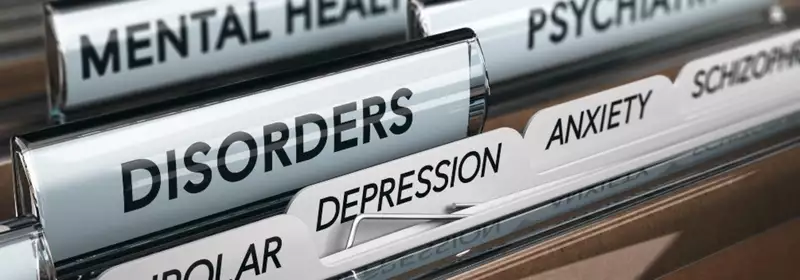Psychiatry is a specialised branch of medicine that diagnoses, treats and prevents mental health disorders.
It is, therefore, a discipline that blends psychology with medicine, although a psychiatrist’s work shouldn’t be confused with that of a psychologist.
A psychiatrist is a doctor. But rather than tending to physical manifestations of ill health, psychiatrists specialise in treating ‘invisible’ afflictions: mental health issues and disorders.
Psychiatrists are skilled professionals with a strong understanding of the mind and body.
They are experts in mental health disorders such as depression, dementia and bipolar disorder.
They use such knowledge to assess patients, create care plans and prescribe medication that is tailored to an individual’s needs.
And they play an integral part in the healthcare system.
Around 450 million people worldwide live with a mental health condition. Some of these people will face significant challenges, whilst others may go about their day-to-day lives seemingly okay.
However small an issue may seem, poor mental health in any capacity can reduce a person’s quality of life. It can also have a severe impact on an individual’s physical health and wellbeing if left unchecked.
Psychiatrists can help restore balance, peace and happiness to people’s lives. They can even save them.

Qualifying in Psychiatry
A career in psychiatry is academically rigorous and requires years of training.
You will need to complete:
- A degree in medicine that has been recognised by the General Medical Council (GMS)
- Foundation medical training
- Specialised psychiatry training.
To enter medical school and begin your undergraduate training, you will need at least 5 GCSEs, including English, maths and a science at grade 4/C or above.
3 A Levels are also required, including biology, chemistry and either maths or physics.
As medicine degrees are competitive, universities will also look at your work experience.
If you already have a non-medical degree, you can apply for an accelerated medical entry graduate programme (GEP).
To be eligible for this, you will need at least a 2:1 in a science-based degree; however, some universities do accept non-science graduates.
Following the completion of your 5-year medical degree or GEP, you will complete a 2-year foundation training programme. This is the first postgraduate training that all medical professionals encounter before they specialise in a certain area of medicine.
Foundation training offers you the opportunity to put the expertise and skills you have developed as an undergraduate into practice in the real world.
You will work in different hospital departments as a junior doctor under the supervision of senior medical professionals. This will give you your first real insight into the realities of a medical career.
After this, you will commence 6 years of specialised psychiatry training. This is split into 2 stages: core and higher speciality training.
During your core training, you will gain valuable experience working and training in sub-specialities of psychiatry. Each placement normally lasts up to 6 months and will allow you to experience different areas of psychiatry before you choose your specialism.
The final stage in your training is your speciality or higher training where you will choose your psychiatry specialism. There are 6 main speciality areas to choose from:
Forensic Psychiatry
Combining knowledge of psychiatry, criminology and the law, forensic psychiatry focuses on the assessment and treatment of criminals and ex-offenders. This field requires you to balance the needs of individuals with the risk of harm to their family and the criminal justice system.
Medical Psychotherapy
This area of psychiatry focuses on psychological and talking treatments to prevent and improve mental health conditions. You will help patients better understand their mental health and the things that trigger poor mental health. As well as helping patients overcome their difficulties, you will contribute a psychological and relationship-based understanding to psychiatric practices.
Child and Adolescent Psychiatry
You will specialise in working with people under the age of 18 and their families. You will diagnose and treat a range of mental health conditions, including eating disorders, anxiety and depression. Your work will aim to help young people live happier and healthier lives.

General Psychiatry
General psychiatrists are qualified doctors who assist with the assessment and treatment of people with mental health issues. You will assess people of working age and develop a therapeutic alliance with them to help manage their condition. This involves liaising with other health professionals and mental health services to offer interventions such as cognitive behavioural therapy and counselling.
Psychiatry of Intellectual Disability (PID)
This aspect of psychiatry focuses on the diagnosis and treatment of individuals with learning disabilities. As well as forming treatment programmes for people with learning and intellectual difficulties, you will assess and manage neurodevelopmental disorders, such as autism and ADHD.
Old Age Psychiatry
This specialism focuses on the treatment and care of older adults who suffer from mental health disorders, such as dementia and schizophrenia. You will collaborate with GPs, social services and carers to provide a holistic approach to mental health care and will work closely with patients’ families/carers.

Once you have completed your training, you will be awarded your Certificate of Completion of Training (CCT).
This will enter you onto the GMC’s specialist register, which will allow you to practise as a psychiatrist. It will also enable you to become a consultant in the psychiatric speciality of your choice.
Taking the above stages into account, you can expect to qualify as a psychiatrist in 13 years from the start of your studies as an undergraduate.
Becoming a Psychiatrist Without A Levels
If you haven’t got the A Levels to go to university, your chances of securing a career as a psychiatrist may seem slim. However, it is possible to start your medical training without traditional qualifications with an Access to Higher Education Diploma.
As a Level 3 qualification, an Access to HE Diploma is equivalent to A Levels. Therefore, it provides an alternative route into higher education and is accepted by most UK universities.
Perfect for aspiring psychiatrists, the Access to HE Diploma (Medicine and Health Care Professions) equips you with the skills and knowledge to succeed at medical school.
As well as preparing you for the demands of undergraduate study, the diploma will also set the foundation for your career as a psychiatrist.
Your Access to HE Diploma can be studied online, which means you can qualify in your own time. While you have 24 months to complete the course, most students take between 9 and 12 months to complete their studies in preparation for their university training.
Following this route brings the time it takes to qualify as a psychiatrist up to 14 years.

Skills for the Job
As well as the right qualifications, you also need the right skills for a future in psychiatry.
You will need excellent communication and interpersonal skills to be able to treat patients effectively and help them through the assessment stage.
Living and coming to terms with a mental health condition can be difficult, therefore you will need to empathise with patients and treat them with dignity and respect.
You will be good at working in intense environments under pressure and be a great problem-solver. Having the capacity to think analytical and scientifically is also an essential skill to making informed decisions about patient care.
You will also need to collaborate well with other medical professionals, work effectively in a multi-disciplinary team and have good leadership skills to train and motivate others.
Above everything though, you need to be emotionally resilient. As a psychiatrist, you will encounter difficult and potentially upsetting situations throughout your career. As such, you need to adapt quickly and keep your cool in challenging situations.
As these skills are essential, you will need to continue your learning throughout your career to ensure that your skillset remains strong.
Continuing professional development (CPD) is vital if you want to remain on the GMC register and practise as a psychiatrist. You can achieve this by attending lectures and courses, peer-reviewing medical papers and conducting research.

Your Career as a Psychiatrist
Psychiatry is a fascinating field of study and one that is truly valuable to the health and wellbeing of society.
By qualifying as a psychiatrist, you will work with a diverse mix of people, in a variety of settings. You could work in private and NHS hospitals, residential homes, prisons and secure hospitals, as well as in your community.
As your progress your career and gain experience, you'll have the opportunity to move into managerial roles. You could oversee a team as a medical lead, be responsible for a specific department as a clinical director or even become a medical director.
There will also be scope for you to work in academia and scientific research, although this is something you will need to decide during your foundation training.
Wherever your psychiatry career takes you, your role will be challenging at times; however, it will be endlessly rewarding. You will change people’s lives by helping them better manage their mental health and improve their quality of life.
If you want to tackle mental ill-health and help improve the lives of people living with mental health disorders, why not begin your journey to becoming a psychiatrist today?
You can get started online, from the comfort of your home, with learndirect.
Click below or call us on 01202 006 464 to enrol on your Access to Higher Education Diploma (Medicine and Health Care Professions) now. Your career in psychiatry awaits!



















